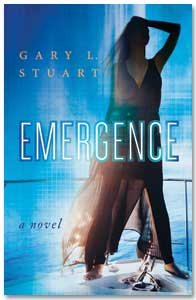Allegedly means according to what has been claimed. It’s used to describe an action or situation someone claims happened but that has not been confirmed or proven, especially a crime. The prompt for today’s blog is an announcement by the U.S. Department of Justice that Mexican cartels “allegedly” used cargo aircraft, private aircraft, submarines, and other submersible and semi-submersible vessels, container ships, supply vessels, go-fast boats, fishing vessels, buses, rail cars, tractor trailers, automobiles, and private and commercial interstate and foreign carriers to transport their drugs and precursor chemicals.[1] So, why the hedging? They did it, right?
Allegedly in this usage is gov-speak for yes they did. But hedging is a mantra for governments, politicians, journalists, tattle-tellers, and hesitant folk to avoid the risk of not being right. Millions of writers use it, thousands try to avoid it, and an unknown number wallow in it. That’s because if you tack it onto your work it apologizes for writing something you don’t know to be true. Besides it gets your point across about someone or something without sounding bigoted, biased, or harsh. Even better you can spread gossip around while verbally citing that you heard it from a source that may not be a reliably truthful source. The goal for serial users of the term is to be safe and look less suspicious.[2]
The right wing of our profession thinks the word should be banned, burned, and buried. It’s the chicken way out. Journalists are taught to use it because they fear defamation like the rest of us fear Covid-19. They think it protects them in some magical way known only to good lawyers. But that’s bunk. “The word ‘allegedly’ is why libel lawyers can afford a second yacht . . . it’s a thinly veiled accusation that lacks a concrete source to support it. Instead of saying, ‘John Doe then allegedly killed Jones with a hatchet,’ they should say ‘John Doe then killed Jones with a hatchet, police said.”[3]
How about this little gem? “Police allegedly waited about an hour and fifteen minutes in the hallway before trying to stop the mass shooting in the Robb Elementary School in Uvalde, Texas.” The passive voice doesn’t help, and the hedging is painful to read. Crime reporting thrives on strong, active verbs. To add salt to vinegar, using “allegedly” in this context makes the tragedy sound like the police had every right to wait an hour and fifteen minutes to act. The children weren’t allegedly shot.
Allegedly is the right word to use in a legal context. In law, if a suspect is said to be allegedly guilty of something, it means that proof has yet to be produced or they have yet to be found formally guilty by law.[4] Using it in a criminal action has a historic explanation. It’s from the medieval English word allege, meaning “quoted” or “brought forth in court.” Caution note—before taking someone to court, take care not to become allegedly a liar.”[5]
Shortly after the man who shot Rep. Gabrielle Giffords, D-Ariz., was taken into custody, TV news accounts were referring to him as the “alleged” gunman. That gunman was overpowered and disarmed at the scene of the crime.[6]
When Army Maj. Nidal Hassan shot more than 30 people at Fort Hood, Texas, in November 2009, he was wounded by a police officer who happened to be a witness. News reports defined Hassan as the “alleged” shooter.[7]
Allegedly has two first cousins; Supposedly and supposably. Some writers feel strongly about these suspicious cousins. They might not be related, just tucked away in case allegedly doesn’t work in a sentence. They are not mispronunciations or synonyms. Supposably is, in fact, a real word and has been used since at least the 1700s. The word supposedly means “according to what is accepted or believed, without positive knowledge.” It is an adverb based on the word supposed. Supposedly is used to express doubt that something is what people say it is.[8] Thus, it may be a synonym of the word allegedly, back in the 1700s.
Now, finally, what about the ethics of using “allegedly?” Is it ethical? Or is it just bad writing? If the word ethical could speak for itself it might rebel. Wikipedia says the definition of ethical is “of or relating to moral principles or the branch of knowledge dealing with these.”[9] I dunno whether writing allegedly is supposedly moral any more than supposably is a third cousin once removed. But quit using it when the truth is obvious.
[1] Heather Cox Richardson from Letters from an American [email protected] April 15, 2023
[2] https://www.urbandictionary.com/define.php?term=allegedly
[3] https://dynamicsofwriting.com/2019/12/10/allegedly-the-word-journalists-should-avoid-at-all-costs-and-three-ways-to-do-it/
[4] https://www.vocabulary.com/dictionary/allegedly
[5] Ibid.
[6] https://www.noozhawk.com/121512_harris_sherline_most_overused_word_allegedly/
[7] Ibid.
[8] https://www.dictionary.com/e/supposedly-vs-supposably/
[9] https://en.wikipedia.org/wiki/Ethics

I am an author and a part-time lawyer with a focus on ethics and professional discipline. I teach creative writing and ethics to law students at Arizona State University. Read my bio.
If you have an important story you want told, you can commission me to write it for you. Learn how.






 I am an author and a part-time lawyer with a focus on ethics and professional discipline. I teach creative writing and ethics to law students at Arizona State University.
I am an author and a part-time lawyer with a focus on ethics and professional discipline. I teach creative writing and ethics to law students at Arizona State University.  My latest novel is Emergence, the sequel to Let’s Disappear.
My latest novel is Emergence, the sequel to Let’s Disappear.  If you have an important story you want told, you can commission me to write it for you.
If you have an important story you want told, you can commission me to write it for you.